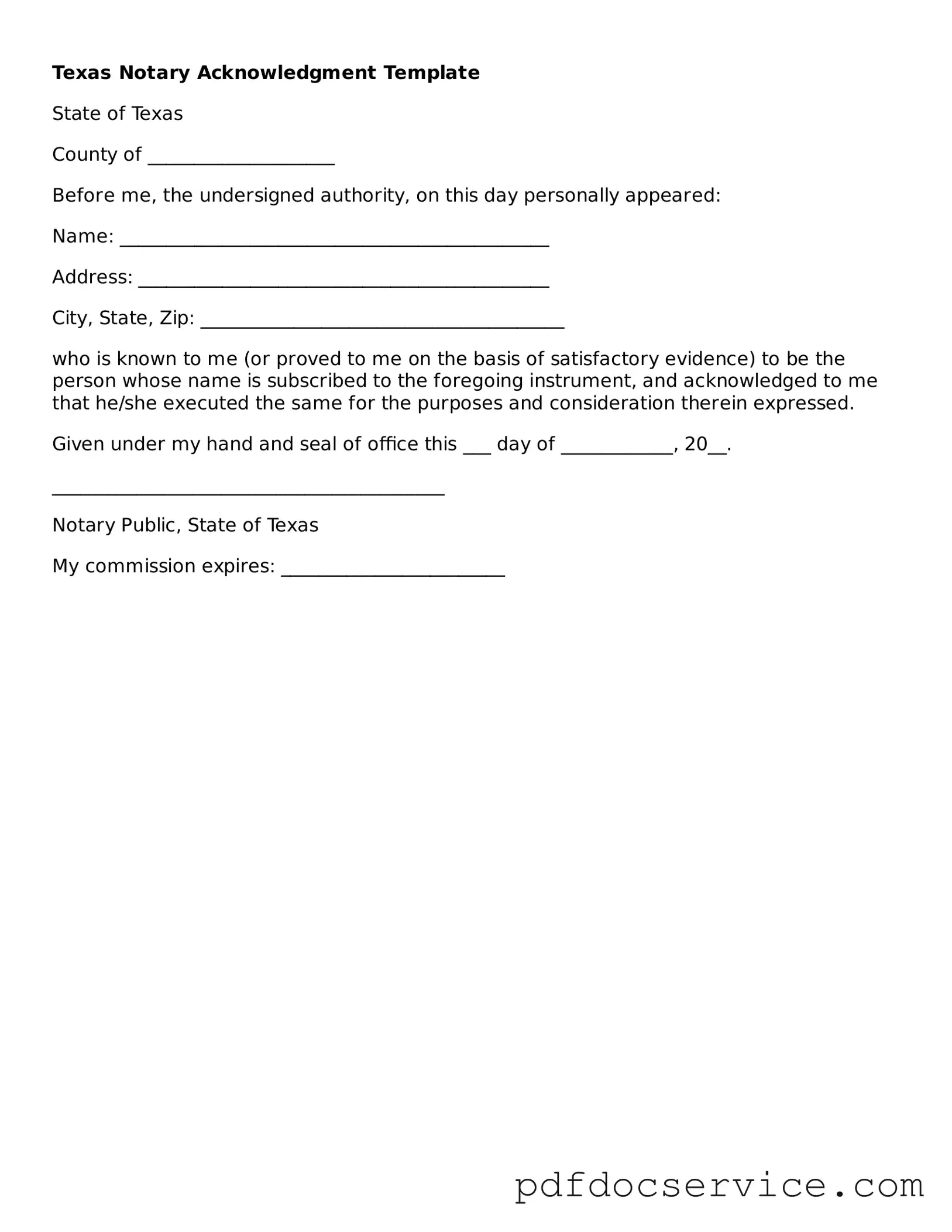The Texas Notary Acknowledgement form is a legal document used to verify the identity of individuals signing a document. It serves as proof that the signer appeared before a notary public and acknowledged their signature willingly. This form is essential in various legal transactions, such as real estate deals, contracts, and affidavits, ensuring that the signatures are authentic and the parties involved are aware of the contents of the document they are signing.
When do I need to use a Notary Acknowledgement in Texas?
You typically need to use a Notary Acknowledgement when you are signing important legal documents that require verification of your identity. Common situations include:
-
Real estate transactions, such as deeds or mortgages
-
Wills and trusts
-
Affidavits
-
Powers of attorney
In these cases, the notary's acknowledgment provides assurance to all parties that the document is valid and the signatures are genuine.
Completing a Texas Notary Acknowledgement form involves several steps:
-
First, ensure that the document you are signing is ready and that all parties are present.
-
Next, sign the document in the presence of the notary public.
-
The notary will then complete the acknowledgment section, which includes details such as your name, the date, and the notary's signature and seal.
-
Finally, review the completed form to ensure all information is accurate.
It is crucial that you do not sign the document before meeting with the notary, as the acknowledgment requires your signature to be witnessed.
The Notary Acknowledgement form typically requires the following information:
-
Your name and the name of any other signers
-
The date of the acknowledgment
-
A description of the document being signed
-
The notary's signature and seal
Providing accurate information is vital to ensure the document's validity and to prevent any future disputes regarding the acknowledgment.
Is there a fee for notarizing a document in Texas?
Yes, there is usually a fee for notarizing documents in Texas. Notaries may charge up to $6 per signature, but this can vary depending on the notary and the specific services provided. It is wise to inquire about fees beforehand to avoid any surprises. Some notaries may offer their services for free, especially in community settings or for charitable purposes.
Generally, a Texas Notary Acknowledgement form is specifically designed for use within Texas. However, if you have a document that needs to be recognized in another state, it may be necessary to follow that state's specific requirements. In some cases, states may accept a Texas Notary Acknowledgement, but it is advisable to verify with the relevant authorities in the other state to ensure compliance.

